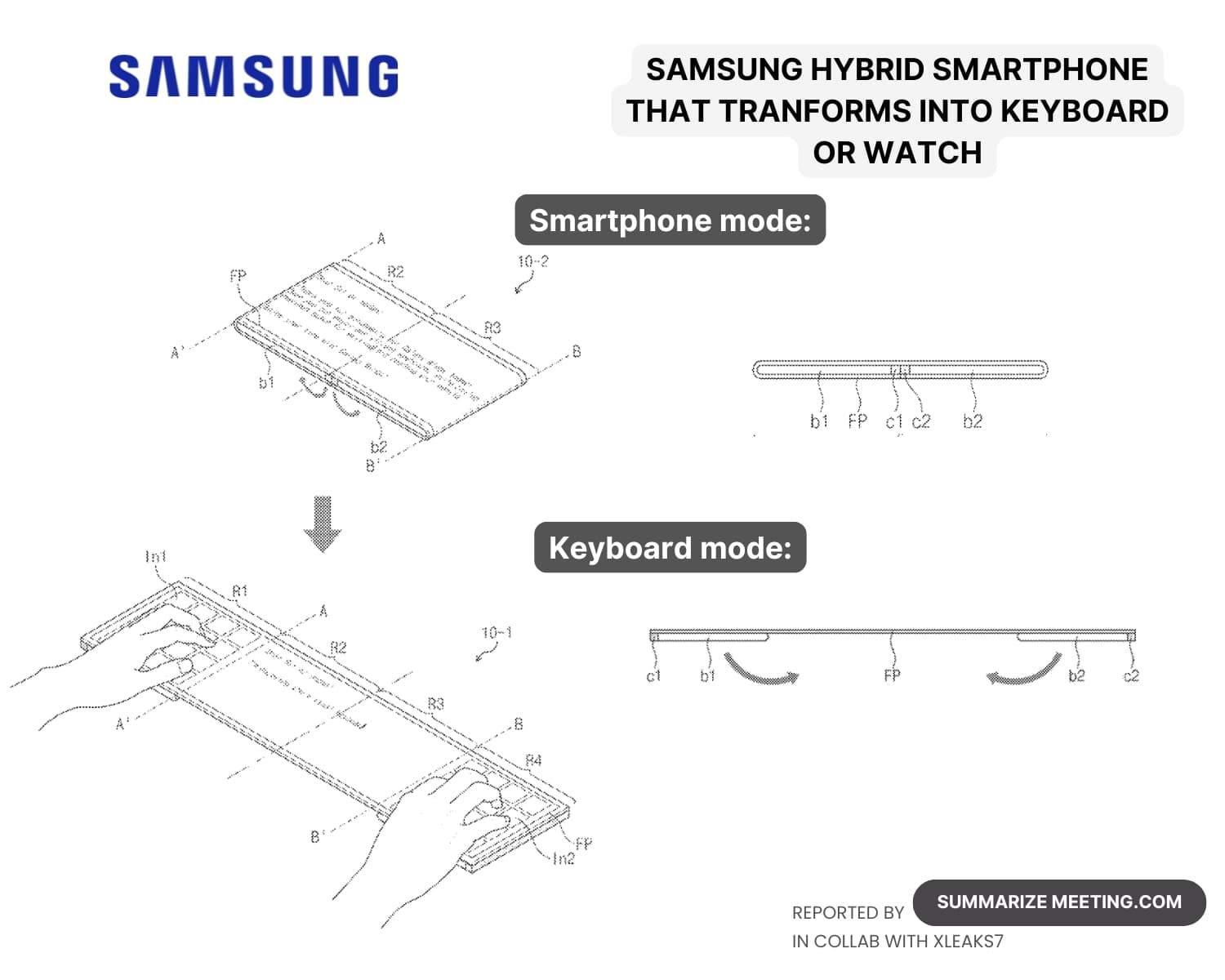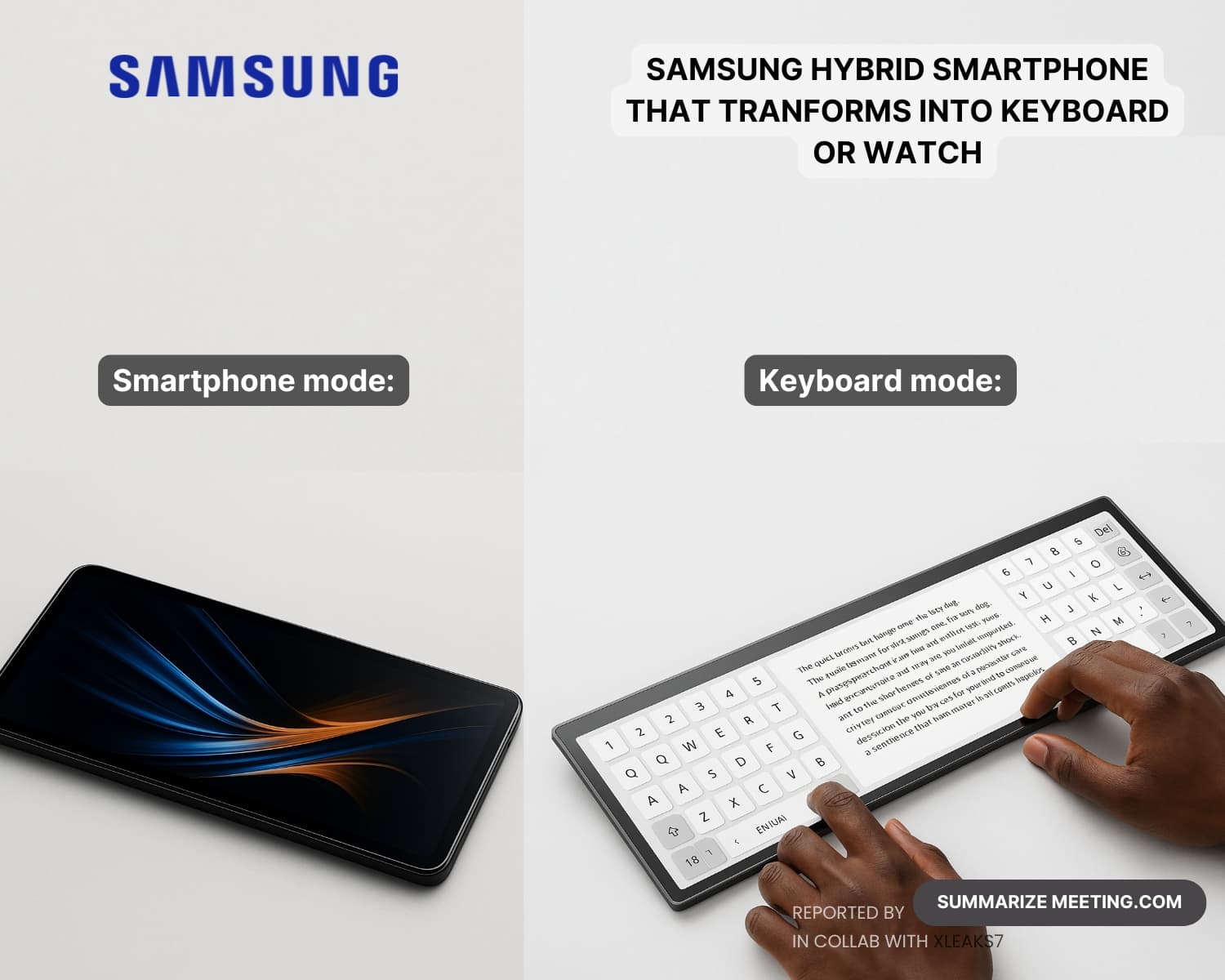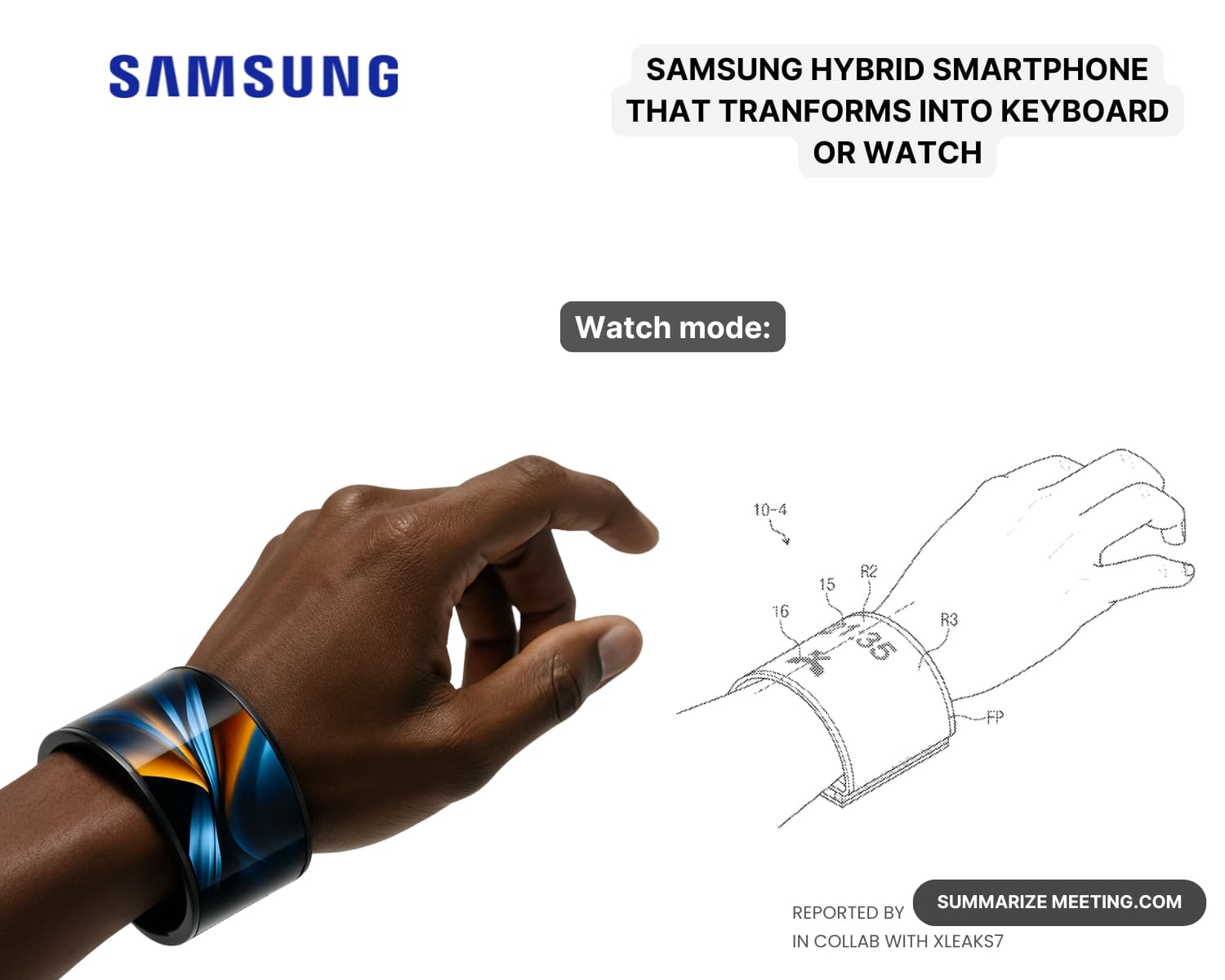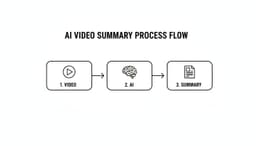Samsung seems to be pushing foldable tech into exciting new territory.
A newly surfaced patent (thanks to our collab with David from @xleaks7) shows off a device that doesn’t just fold in half.
The device that can actually transform into different shapes - from a flat tablet-style display to a split keyboard or even a wearable watch-like form on your wrist.

A rollable smartphone that transforms into keyboard | Image: SummarizeMeeting
Smartphone-to-Keyboard
One of the most futuristic twists in this patent is how the phone can actually turn into a keyboard.
When folded a certain way, the screen splits into two functional zones - one on the left, one on the right.
The controller recognizes this shape and instantly transforms those zones into a dual-side keyboard interface, letting you type with both hands comfortably, just like on a physical keyboard.
Imagine flipping open your phone, and instead of just a big screen, you get a built-in typing station - no extra accessories needed.
It’s a nod to laptops, but in pocket size.

Smartphone mode on the left, Keyboard mode on the right | Image: SummarizeMeeting
Smartphone-to-Watch
Fold it differently, and the story changes completely.
In this configuration, the display curves while the rigid supports overlap, leaving a small gap that makes it possible to wear the device on your wrist.
The phone becomes a kind of smartwatch mode, showing quick-glance information like time, notifications, calls, or messages on the curved middle sections of the display.
To save battery, the hard-to-see outer regions switch off, while the curved inner parts remain active. It’s a clever blend of wearable tech and foldable phone design, potentially replacing your smartwatch altogether.

A flexible-display smartphone that transforms into smartwatch | Image: SummarizeMeeting
The Technology
Under the hood, Samsung’s patent relies on a mix of flexible OLED/EPD panels, rigid structural supports, and sensors that detect how the screen is folded.
- Supports: Reinforce the outer sections, guide the folding radius, and can even snap together magnetically for stability.
- Sensors: Detect folding angles and positions in real time.
- Controller: Adjusts which screen zones light up and what interface appears, depending on the device’s shape.
This isn’t just about folding a screen, it’s about building a device that adapts to you.
One moment it’s a tablet, then a keyboard, and the next, a watch.
Packed with Galaxy AI
With Galaxy AI in the mix, a transforming smartphone like this could feel completely different to use.
In keyboard mode, AI could act as a smart typing assistant - predicting sentences, offering real-time translation, or even automatically formatting notes and emails as you type.
In watch mode, Galaxy AI could focus on health and lifestyle features, delivering personalized reminders, fitness tracking, and proactive notifications right on your wrist.
And in smartphone/tablet mode, AI could power multi-app multitasking, smarter search, and instant photo or video editing.
Together, these features suggest a future where the phone isn’t just folding to change its shape, but actually reshaping itself around your needs.
NOTE TO EDITORS: The text and visuals of this article are the intellectual property of SummarizeMeeting.com. If you want to share the content, please give a proper clickable credit. Thanks for understanding.


